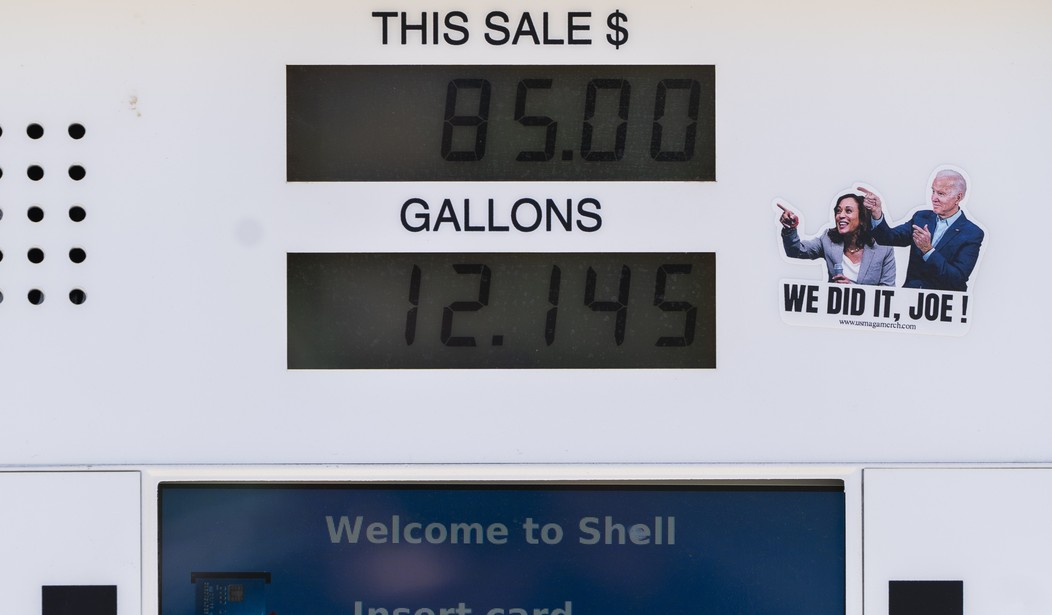There’s an admittedly awkward question that could use answering. The Biden administration and its European Union partners have leveled heavy sanctions against the Russian oil industry in an attempt to cripple financing of the Ukrainian invasion. It remains to be seen if their joint efforts have shown the results they were envisioning from a Russian perspective.
But the geniuses in this country who thought cutting off the flow of Russian fossil fuels in Europe was a bang-up idea had forgotten about the part where they’d hamstrung our own oil and gas industry. We found ourselves in an even worse pickle shortly after that embargo began. As if it were a jar of M&Ms on his desk, Biden has been wantonly raiding the Strategic Petroleum Reserve in an attempt to mollify consumers torqued about the insane spikes in fuel costs. Plus, he’s made a little cash on the side selling millions of barrels of SPR oil at inflated prices to his buddies in China and elsewhere.
There are no replacement M&Ms in the foreseeable future, which is a concern for one who can’t seem to stop himself from plunging that fist back in one more time.
Eventually one hits the bottom of the jar.
They haven’t closed the Mars factory in Hackettstown, as far as I know. What Biden has done is basically shut down the U.S. oil industry. What is not directly done through lack of permits, he’s also managed concomitantly through market and over-regulation insecurity.
Whatever green fever dreams this group of gasbags runs on in their heads, the country runs on oil, gas, diesel, and jet fuel. And the United States, thanks to both circumstance and the Biden administration’s outright hostility to fossil fuels in any respect, is losing the ability to maintain both those supplies and the ability to produce the raw and refined products.
One of the under-reported factors behind the ongoing diesel shortage is the loss of U.S. refining capacity since the start of the Covid-19 pandemic. Today I will discuss the factors that led to this loss.
According to the Energy Information Administration (EIA), at the beginning of the pandemic U.S. refiners had 19.0 million barrels per day (BPD) of operable refining capacity (Source). This was the highest number ever reported by the EIA.
By December 2021, that number had fallen to 17.9 million BPD — a loss of 1.1 million BPD of capacity in less than two years.
Here is the thing many do not understand about refining. It is a boom and bust business, and these refiners do not have crystal balls. It is widely reported when they make huge profits, but they also regularly endure huge losses.
U.S. energy policy has been clear about the intent to phase out fossil fuels. If you are a refiner forecasting billions in losses — and you require massive investments in order to keep your refinery operating safely and in compliance with the laws — you may very well simply make the decision to close down.
No one was crying for the oil companies when they lost $76B during the COVID downturn.
The downturn brought by the COVID-19 pandemic and the accelerating energy transition has created a new reality for the world’s oil and gas industry, whose production will peak lower and earlier than expected, according to Rystad Energy. The five integrated supermajors – ExxonMobil, BP, Shell, Chevron, and Total – posted a combined record loss of $76 billion in 2020.
The major chunk of this loss, $69 billion, can be attributed to asset impairments and write-offs as the supermajors re-evaluated strategy to become less dependent on petroleum. Their combined oil and gas output dropped by nearly 5%, or 900,000 boe/d, in 2020 from the year before.
As industries do to survive, they read what the wind was bringing in – Biden, Europe’s increasing reliance on renewables, et al – and used the time to start shifting focus and consolidating resources. That included shutting refineries and not pursuing drilling leases they may have already had in hand here. There hasn’t been a new refinery built in the U.S. since 1977 and, with Biden in the White House, there would be no going forward. In fact, they knew could probably anticipate a huge retrenchment in the energy sector, and turns out they were correct.
So. What was the point? Big oil would be able to sit back and roll in the profits shortages were making for them (And remember – oil doesn’t set those prices – the market does.) while watching everyone scramble for available resources.
Today, Bloomberg broke the news that perhaps the Biden stra-tee-gery on Russian oil was…showing some leaks?
New York’s importing 8X more gasoline from India.
The surge comes amid mounting fears of a gasoline shortage on the East Coast this summer.
India’s refineries get 20% of their oil from Russia so some of the gasoline revenue helps bankroll Putin’s war in Ukraine. pic.twitter.com/nGwXhDgaRE
— Brian Gitt (@BrianGitt) February 2, 2023
Well, monkey’s uncle.
New York Is Gorging on Fuel Made From Illicit Russian Oil (1)
New York is buying an unusually large amount of gasoline and diesel from India — a country that has become a top outlet for sanctioned Russian oil.
About 89,000 barrels per day of Indian gasoline and diesel will reach New York this month, the most in nearly four years. This accounts for more than 40% of the region’s total imports for January, according to Kpler data compiled by Bloomberg.
India is replacing fading European fuel shipments to New York with gas and diesel refined from Russian oil.
Oh, and, hey, look! What fun!
Now that the door’s been blown off of that little Russia-India-New York hydrocarbon hypocrisy shell game, guess what they’re talking about for New York – maybe the East Coast as a whole – this summer?
Jimmy Carter gas lines redux, with a side of “How much did I just spend?!” shock for good measure..
In order to compensate for supplies from Europe, Bloomberg notes, companies will have to look for new sources of replenishment. One of the options could be the redirection of fuel from the Gulf of Mexico to the Caribbean, and then to the United States.
— GraphicW (@GraphicW5) January 31, 2023
Gird your loins for more argle-bargle out of the BSer in chief when that hits.
It’ll be “Putin’s war on gas,” “Trump,” and/or “right-wing extremist pick-up truck drivers” who did it (Who am I leaving out to blame?).
Can’t wait to see the catchy Winter of Death™-like slogan they come up with for this summer.







Join the conversation as a VIP Member